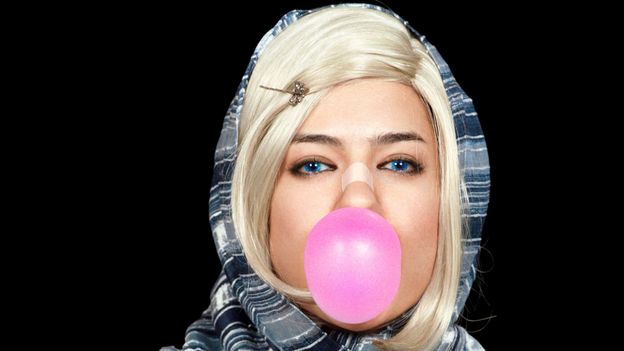Striking photos of a lesser-seen Iran


Akhlaghi’s major concern before the show opened was that because she portrays pre-revolutionary events, the women in her scenes sometimes show their hair. “I was really worried about this. I was ready to say, ‘Don’t worry, they’re wearing wigs, it’s not real hair.’ In the end they didn’t even ask.” So it’s a case of being clever about how you work? “You have to be clever about everything. It’s what we artists have to do.”
While many Iranian artists have emigrated or live in exile, Akhlaghi and others stay not because they have no other choice, she points out, but because they want to. “I have Australian citizenship,” she says. “I’ve worked in Melbourne, London, New York. But I prefer to work in Tehran. This is my country, the place that gives me ideas.”
What will happen next in Iran, which has been hit punishingly hard by Covid-19, is anyone’s guess. In June, the hardliner Ebrahim Raisi became president in an election that critics claimed was rigged, and there are fears that a crackdown on civil liberties, especially those of women, might result. It remains to be seen whether President Biden’s US administration will honour its pledge to restore the JCPOA nuclear deal and reduce the sanctions pummelling Iran’s economy. Even less clear is when, or even if, international travel – and international art loans – will resume at scale.
Akhlagi and others I speak to are pessimistic about the big picture, but say that art carries on as it always has done, even in the toughest times of the Iran-Iraq war or under the conservative Mahmoud Ahmadinejad regime of 2005-13. “The people working within the government are Iranian, and Iranians are proud of their culture,” Noebashari says. “Even conservative politicians, they recite poetry in their speeches. Art has been in Iran for 5,000 years. It will survive.”
In the meantime, it’s up to us elsewhere to adjust our view – particularly our view of art by Iranian women. “We get understood in black-and-white terms,” says Afkhami. “And in Iran absolutely nothing is black and white.”
Rebel, Jester, Mystic, Poet: Contemporary Persians – The Mohammed Afkhami Collection is at the Asia Society, New York, until 8 May 2022.
If you would like to comment on this story or anything else you have seen on BBC Culture, head over to our Facebook page or message us on Twitter.
And if you liked this story, sign up for the weekly bbc.com features newsletter, called The Essential List. A handpicked selection of stories from BBC Future, Culture, Worklife and Travel, delivered to your inbox every Friday.








